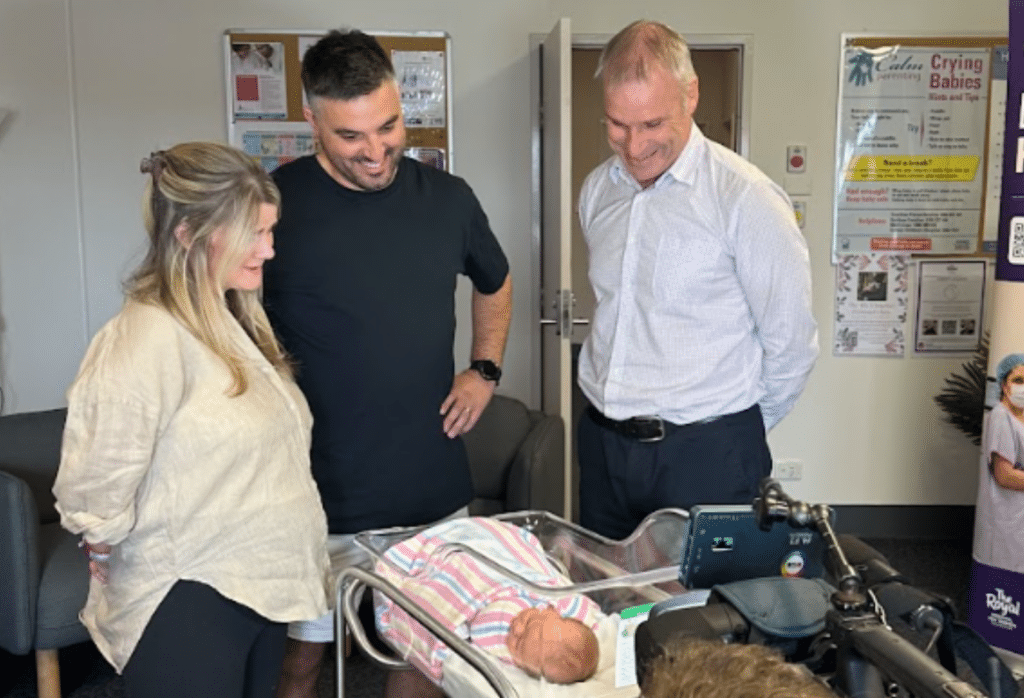Australia’s first ever baby conceived via a new clinical procedure to treat infertility has been born.
Leanna and Theo Loutas celebrated the birth of their first-born, Bonnie, last week at Sydney’s Royal Hospital for Women in Randwick.
Earlier this year, the couple were offered a new fertility procedure called CAPA IVM (Capacitation in-vitro maturation) — a treatment which involves retrieving eggs at an immature stage and bringing them to maturity in cell culture.
It eliminates the need for two weeks of hormone treatment and costs about half the price of traditional IVF.
Leanna Loutas said the alternative treatment allowed her to travel and celebrate Christmas without the stress of fitting in two weeks of hormone injections.
“I was going to take a break before trying IVF again as I didn’t want all of the side effects of the hormones while traveling,” she said.
“When I was offered CAPA IVM, I was pleasantly surprised to learn that I would only need to do two days of injections. It made the whole process seem a lot less daunting.”
The Loutas’ struggled for two years to fall pregnant, trying a range of treatment methods, including a round of IVF.
“CAPA IVM was a success and we were able to freeze two embryos,” Leanna said. “[A baby] was the best Christmas present we could have possibly had.”
“We feel hugely privileged and grateful to have been given this opportunity. Hopefully we’re the first of many to come and when other people hear about our story it will give them encouragement”.
CAPA IVM is currently available to select patients at The Royal Hospital for Women through the Fertility & Research Centre, which is funded by The Royal Hospital for Women Foundation.
Professor Bill Ledger, the hospital’s head of Reproductive Medicine, said the hospital is one of only six locations in the world to offer CAPA-IVM.
“While this is a special time for Leanna and Theo as they enter the journey of parenthood, it’s a big moment for everyone involved, as we close the loop from research to the arrival of a baby,” Prof Ledger said.
CAPA-IVM uses new science, resulting in higher pregnancy rates per cycle.
“The problem has been when you take an egg out of the human body it matures very quickly, even when it may not be ready to, but the CAPA method switches off the progression of the egg for 24 hours,” Prof Ledger explained. “So it grows more slowly, and it matures more healthily.”
Professor Robert Gilchrist is a NHMRC Senior Research Fellow and Director of Research in the School of Women’s & Children’s Health, whose research has contributed to the development of CAPA IVM.
“The principal advantage of CAPA IVM is that it uses only two days of hormone treatment compared to two weeks of hormone treatment in an IVF cycle. So the burden is much less on the patient,” he said.
“We’ve got quite a special treatment here because these women have only two days of hormones and have a reasonable prospect of getting pregnant”.
“Many years of blood, sweat and tears have gone into this,” Prof Gilchrist said. “Countless hours of research over two decades, so this is a very proud moment.”
“To be able to take a discovery from the lab into a clinic and make a real difference for Leanna on her fertility journey and other women who will follow is very special”.


